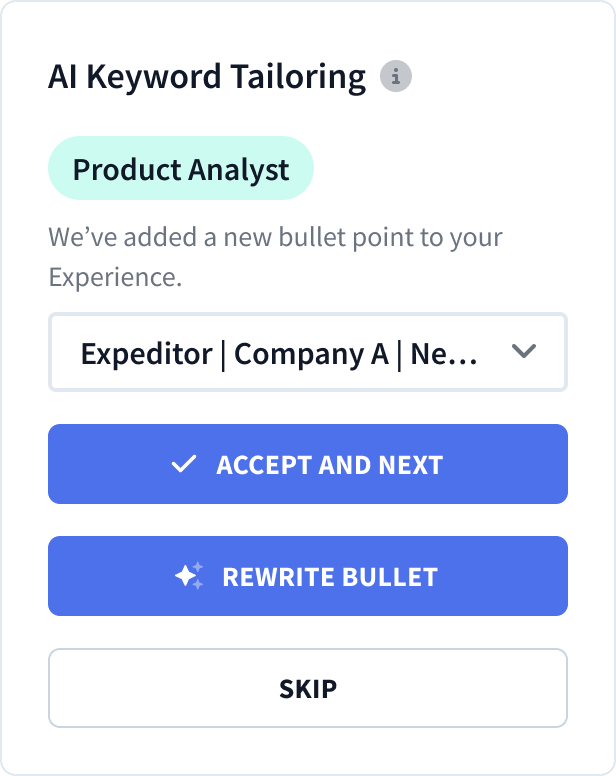45+ Best Skills to Put on a Resume
Choosing the right skills for your resume can make the difference between landing an interview and getting overlooked by hiring managers. The skills section serves as a powerful snapshot of your professional capabilities, showing employers what you bring to the table beyond your work history.
In this guide, you’ll find essential skills to include on your resume and how to present them effectively to maximize your chances of success.
Types of skills to put on your resume
The best skills to put on a resume include a strategic mix of hard skills, work methodologies, and technical abilities that demonstrate your qualifications to employers, aligning with the eight distinct career readiness competencies.
These skills should be tailored to the job you're applying for and highlight your ability to perform specific tasks, work well with others, and adapt to changing environments.
Pro tip: Soft skills (ie., terms like "team player" or "adaptability") don't add value when listed outright on a resume. That's mainly because anybody can claim they are a "team player," but without examples or "proof," it's tough for a recruiter to verify.
It's better to demonstrate soft skills through your work experience. For example, show you’re a team player by adding a bullet like: “Collaborated with a team of 5 marketing specialists to deliver a pitch deck, which was critical in bringing in a new high-profile client.”
Hard skills
Hard skills are specific abilities that can be defined and measured. These skills are often learned through formal education, training programs, or on the job, and they vary depending on the role or industry.
Hard skills can include:
- Accounting and financial analysis: Shows your ability to manage budgets and understand financial statements
- Writing and editing: Demonstrates your communication abilities and attention to detail
- SEO and digital marketing: Shows you understand how to optimize content for search engines
- Data analysis: Proves your ability to interpret complex information and identify patterns that drive business decisions
- Project management: Demonstrates your ability to plan, execute, and close projects while managing resources and timelines
Take a look at this programmer template for an example of how to incorporate hard skills into a resume:
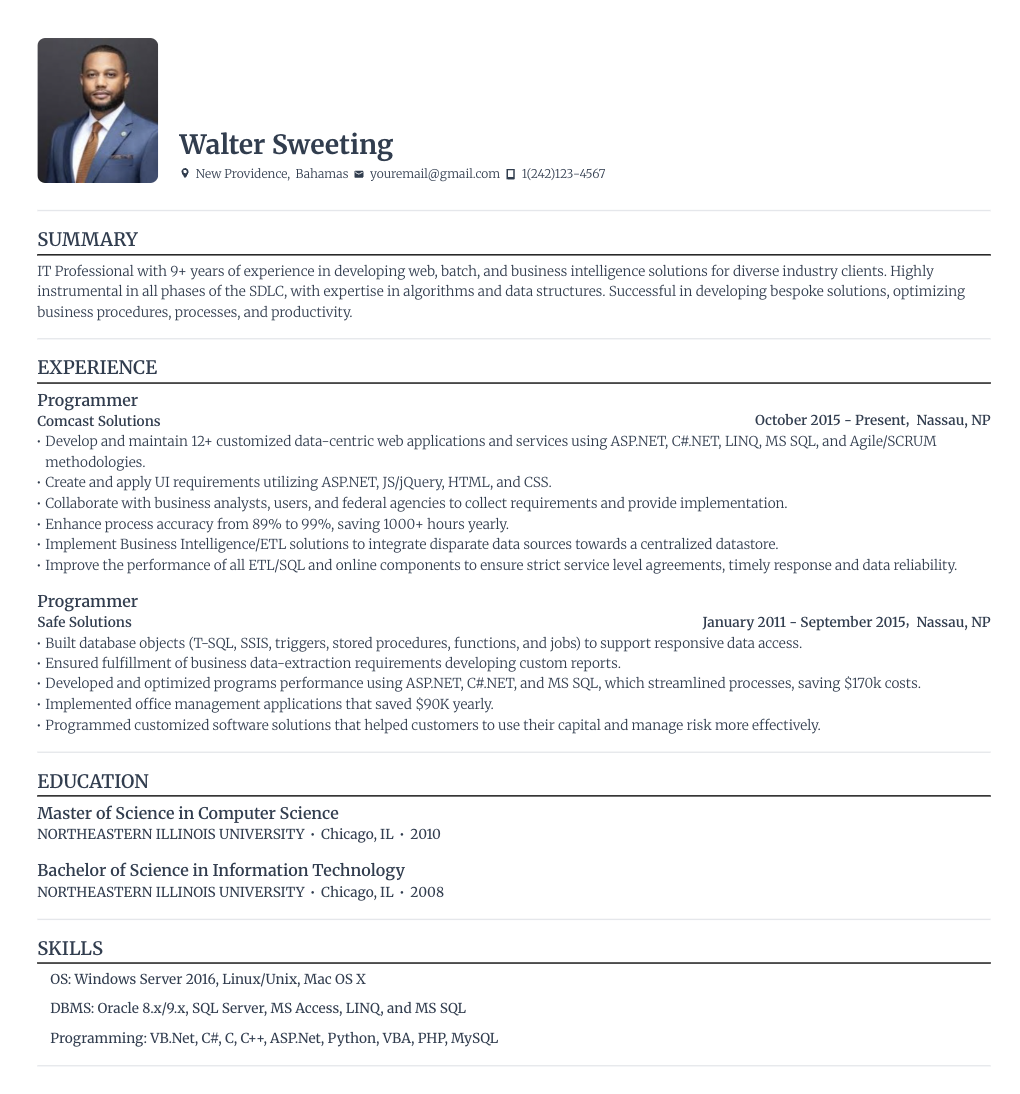
Technical skills
Technical skills involve your proficiency with specific tools, software, and technologies relevant to your field, though these can vary widely depending on the job. Valuable technical skills include:
- Database management: Shows you can organize and manipulate large datasets efficiently
- Cloud computing: Experience with AWS, Azure, or Google Cloud reflects your understanding of modern IT infrastructure
- CRM software: Demonstrates your ability to manage customer relationships and sales processes effectively
- Microsoft Office Suite: Shows baseline proficiency expected in most professional roles
- Programming languages (Python, Java, C++): Indicates versatility and value across industries
- Adobe Creative Suite: Shows strength in visual communication and creative content production
Here’s a software engineer resume that demonstrates strong technical abilities:
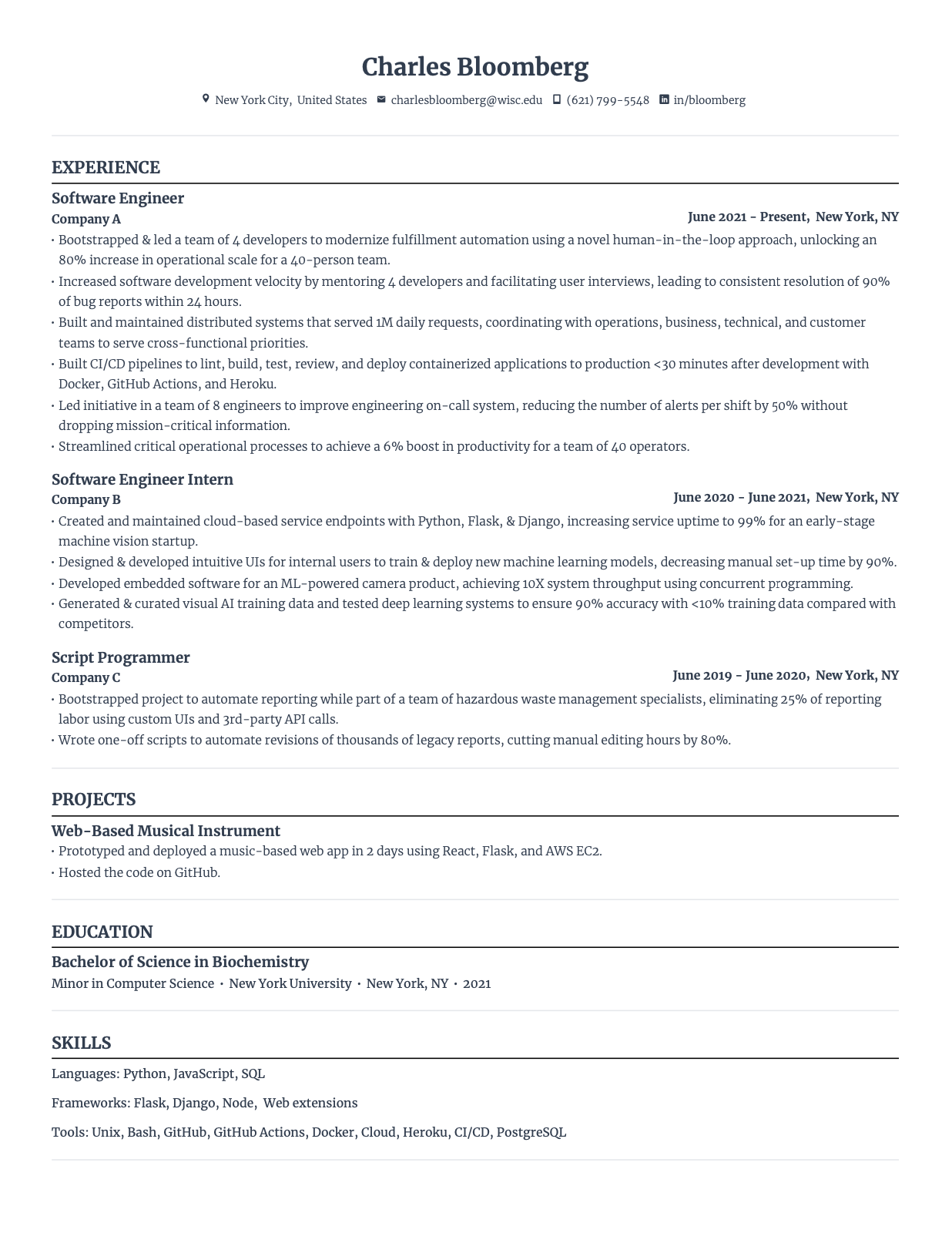
Highlight your technical skills with an online resume builder
Work style and methodologies
Use your resume to showcase how you work and interact with others, reflecting your personality traits and interpersonal abilities. You can include:
- Adaptability: Shows you can pivot quickly when circumstances change
- Teamwork: Demonstrates that you collaborate effectively with diverse colleagues
- Time management: Indicates you can prioritize tasks and meet deadlines consistently
- Emotional intelligence: Includes self-awareness and empathy, helping you navigate workplace relationships successfully
- Communication skills: Shows you can convey ideas clearly and persuasively, both verbally and in writing
- Leadership: Demonstrates your ability to motivate others and take initiative, regardless of your role
- Problem-solving: Reflects your capability to tackle challenges and find solutions independently
The resume template shows how you can weave these methodologies, like teamwork and problem-solving, into the body of your resume:
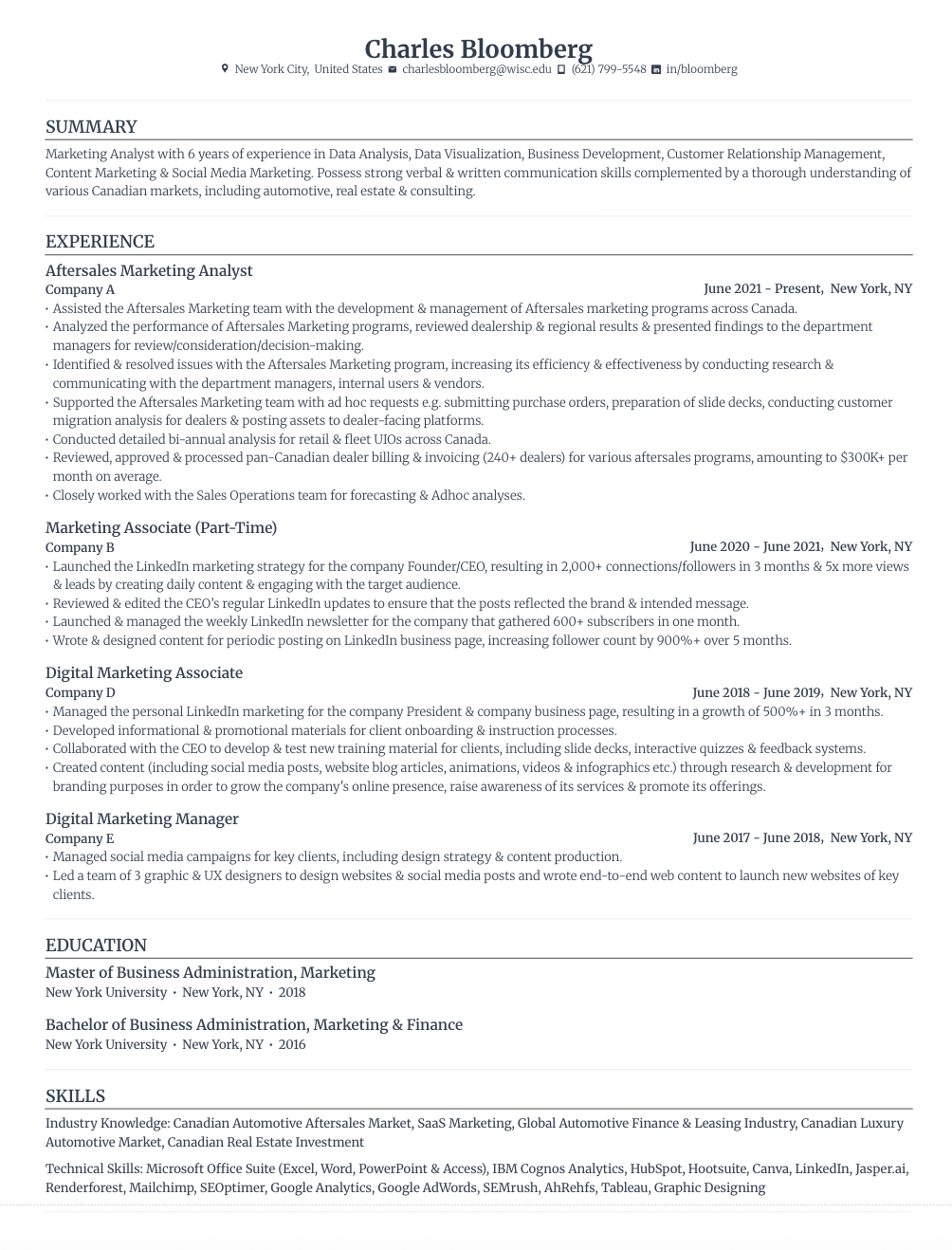
Highlight these skills with an AI resume builder
Best skills to add to your resume by industry
When building your resume for specific industries, it's always good practice to highlight the skills most relevant to that sector. And while every role is different, we’ve covered some top skills for a variety of industries in this list.
Healthcare
For healthcare professionals, showing key skills on your resume is needed to convey your expertise and readiness to provide high-quality care. Emphasizing both technical knowledge and interpersonal abilities helps demonstrate your value in clinical settings.
Healthcare professionals should highlight skills like:
- Patient care skills: Demonstrates your ability to provide compassionate and effective treatment
- Electronic Health Record (EHR) proficiency: Shows you can manage critical clinical information systems, especially with platforms like Epic or Cerner
- Medical terminology knowledge: Indicates clear and precise communication with healthcare teams
- Clinical assessment skills: Highlights your ability to evaluate patient conditions and develop appropriate care plans
- Regulatory compliance knowledge: Reflects your understanding of privacy and legal standards
- Crisis management abilities: Showcases your capacity to stay calm and effective during medical emergencies or high-pressure situations
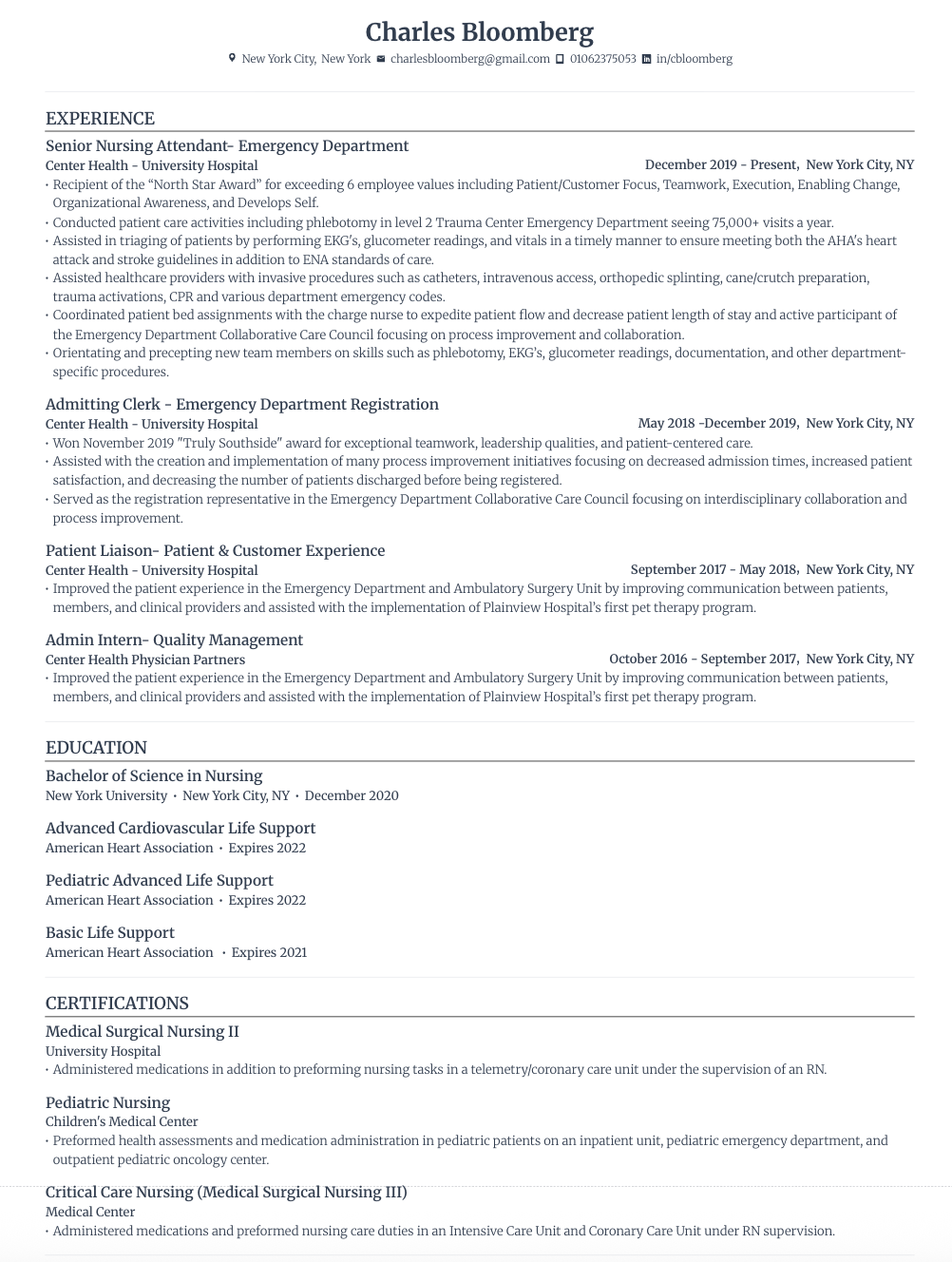
Build a healthcare resume for free
Marketing
Marketing professionals should showcase campaign management skills that demonstrate their ability to plan, execute, and measure marketing initiatives across multiple channels. Key marketing skills to highlight include:
- SEO and SEM knowledge: Shows your ability to optimize content for search engines and manage paid advertising campaigns
- Data analytics skills: Particularly with tools like Google Analytics and marketing automation platforms, demonstrates you can measure campaign performance
- Market research abilities: Indicates you can identify consumer trends and competitor activities to inform strategic decisions
- Content creation: Shows your creative capabilities, like writing engaging copy and developing visual assets
Social media expertise: Highlights your understanding of digital engagement strategies through platforms like Instagram, Facebook, LinkedIn, and TikTok

Create a resume for your next marketing job
Tech
In today’s fast-evolving tech landscape, showcasing the right technical skills on your resume is essential to stand out. Highlighting both foundational and cutting-edge abilities demonstrates your versatility and readiness for modern challenges.
Essential tech-focused skills include:
- Programming languages: Establishes your technical foundation through knowledge of popular tools like Python, Java, JavaScript, and C++
- Cloud computing expertise: Shows you can manage scalable, modern infrastructure using platforms such as AWS, Azure, or Google Cloud
- DevOps skills: Highlights your ability to bridge development and operations
- Data analysis capabilities: Proves you can adapt as companies become more data-driven by understanding programs like SQL, R, and Python libraries
- Cybersecurity knowledge: Reflects your ability to protect critical systems and sensitive information from ongoing threats
- Artificial intelligence and machine learning: Positions you at the forefront of innovation and prepares you for future-ready problem solving
Impress tech recruiters with an optimized resume
Sales
In sales, the right skills can set you apart in a competitive, results-driven field. Highlighting a mix of interpersonal strengths and technical tools shows you're equipped to drive revenue and build lasting client relationships.
Important sales skills include:
- Negotiation skills: Demonstrates your ability to reach mutually beneficial agreements with clients and partners
- Relationship building: Shows your strength in creating and maintaining long-term customer connections
- Product knowledge: Indicates a clear understanding of what you're selling and how it meets client needs
- CRM software proficiency: Highlights your ability to manage customer data and track sales pipelines, especially with tools like Salesforce or HubSpot
- Cold calling and prospecting skills: Shows your ability to identify, engage, and convert new leads
- Closing techniques: Reflects your ability to guide prospects through the sales process and secure deals
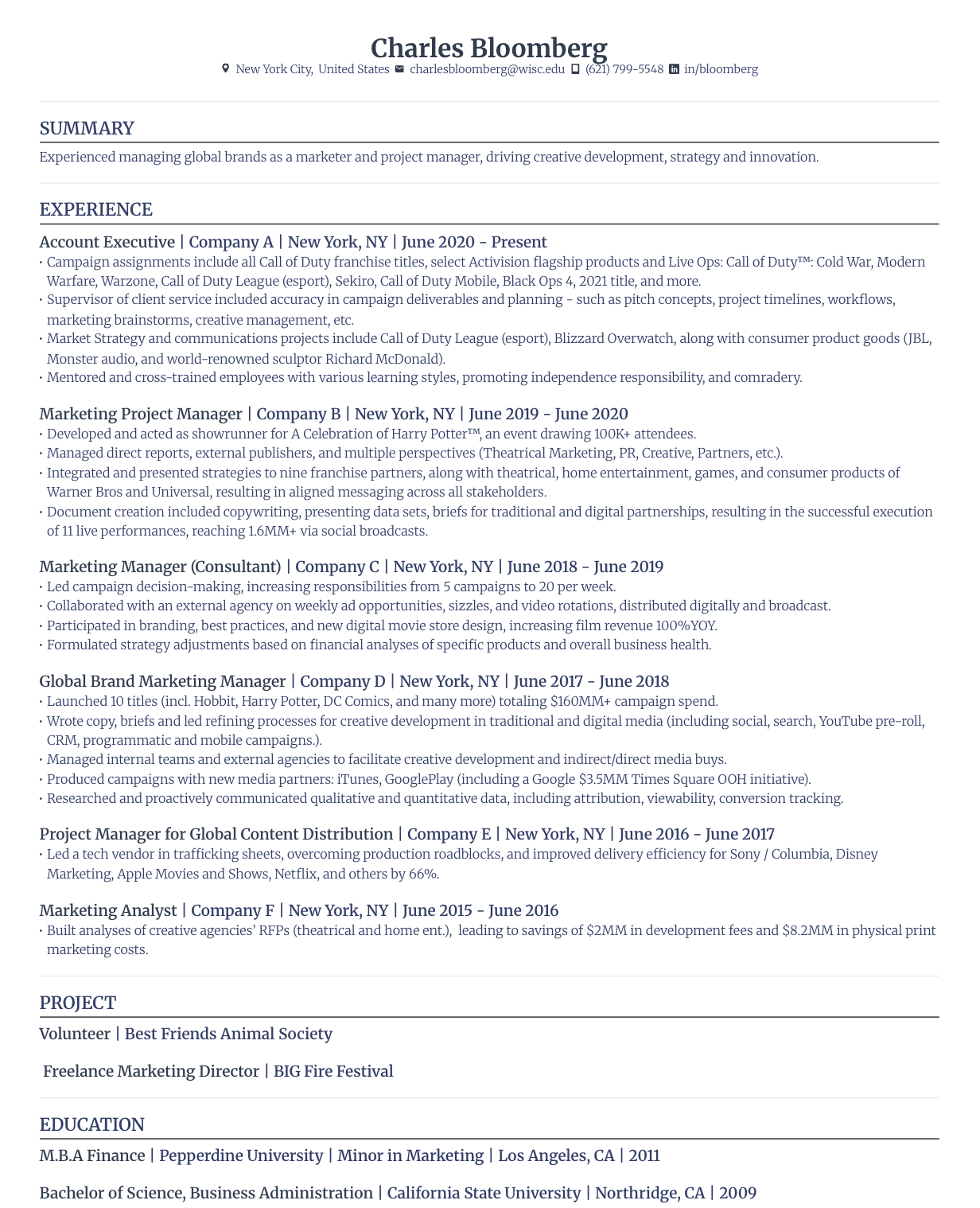
Streamline resume building for your next sales role
Education
Educators should highlight curriculum development skills that demonstrate their ability to create engaging and effective learning materials aligned with educational standards. Essential education skills include:
- Educational technology proficiency: Demonstrates your comfort with digital learning tools and platforms that enhance student engagement
- Differentiated instruction abilities: Shows you can adapt teaching methods to accommodate diverse learning styles and needs
- Parent communication skills: Highlights your capacity to effectively engage families in the educational process
- Classroom management capabilities: Shows you can maintain a productive learning environment
- Assessment design skills: Indicates your ability to evaluate student progress through appropriate testing and feedback methods
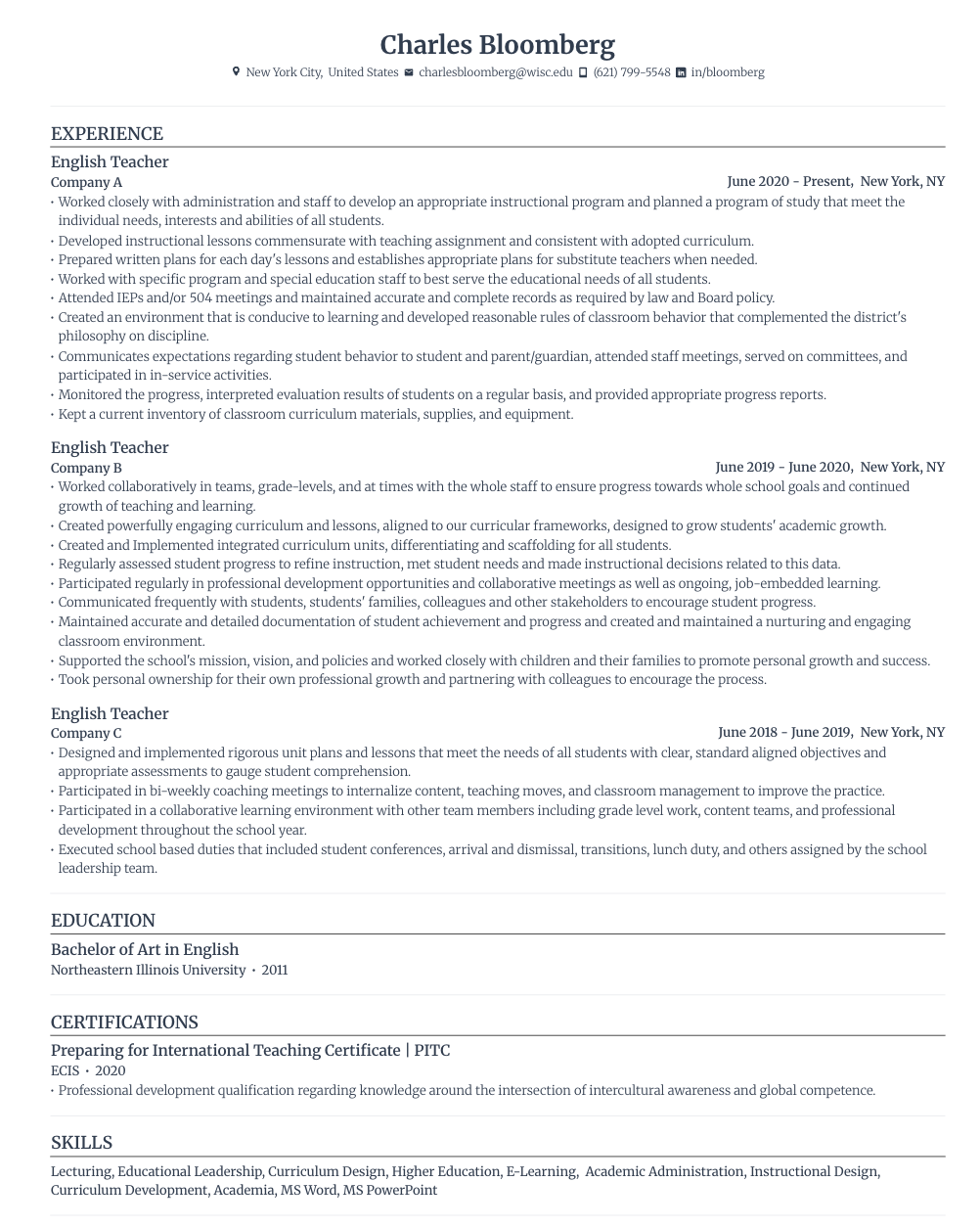
Build your next resume with AI
Best practices for highlighting skills on your resume
Effectively showcasing your skills requires strategic placement and presentation that makes them easily identifiable to both human reviewers and ATS systems. By thoughtfully integrating key skills into both dedicated sections and your work experience, you enhance your resume’s impact and increase your chances of landing an interview.
1. Understand where to include your skills
A dedicated "Skills" section at the bottom of your resume provides a quick overview of your capabilities for recruiters scanning your document. This section should be concise and organized by category (e.g., technical skills, hard skills) for easy readability. For technical roles, consider using skill bars or ratings to indicate proficiency levels, but avoid subjective self-ratings that may appear arbitrary.
You can also bring your skills to life by weaving them into your work experience bullet points, showing exactly how you've used your skills to drive results on the job. For example, to show off your project management chops, you could say, “Managed a cross-functional team of 8 members to deliver a $500K software implementation project on time and 15% under budget.
Your professional summary or profile statement at the top of your resume can also highlight 2-3 of your most impressive and relevant skills.
Example: Detail-oriented software engineer with 5+ years of experience in Java development and cloud architecture, specializing in creating scalable solutions for financial services clients.
2. Keep skills specific and relevant
Replace generic skill terms with more specific, impressive alternatives that illustrate your levels of expertise. For example, instead of only listing Microsoft Office as a skill, specify that you understand how to use advanced Excel formulas and pivot tables or PowerPoint presentation design.
Update your skills section regularly as you acquire new abilities or as industry terminology evolves. Skills that were cutting-edge five years ago may now be considered basic or outdated, so ensure your resume reflects current industry standards and technologies.
You don't have to be the only one scanning job descriptions for key skills—Resumatic can do it for you. It highlights the most important keywords and helps you tailor your resume to match exactly what each employer is looking for.
Built-in writing tips show you how to naturally include these skills so your resume feels personalized, not copy-pasted. And with ATS-friendly templates, your resume is designed to get past filters and in front of real people.
3. Show your impact with metrics
Quantify results where possible to give employers a snapshot of what you're able to achieve. Instead of, “Improved sales through social media marketing,” try: “Increased quarterly sales by 27% through targeted Instagram and Facebook campaigns reaching 50,000+ potential customers."
Ideally, connect your skills directly to business outcomes that employers care about, such as revenue growth, cost reduction, efficiency improvements, or customer satisfaction. For example: "Analyzed manufacturing data using Python to identify process inefficiencies, resulting in 15% reduction in production costs and $200K annual savings."
Use action verbs that highlight how you employed your skills to drive results. Verbs like “implemented,” “developed,” and “generated” are more powerful than passive phrases like "was responsible for" or "duties included."
4. Avoid overused buzzwords
Replace vague buzzwords and clichés with specific examples that illustrate your abilities in action. Instead of describing yourself as "detail-oriented," mention how you "identified and corrected 15 critical errors in financial reports that prevented compliance issues."
Another example is the use of "team player." As an alternative, describe how you "collaborated with marketing and sales teams to develop integrated campaigns that increased lead generation by 35%."
Focus on industry-specific terminology that shows your familiarity with the field rather than generic phrases that could apply to anyone. For technical roles, include specific methodologies, tools, and methodologies rather than general terms like "technical skills" or "computer proficient."
Avoid subjective self-assessments like "excellent communication skills" or "strong work ethic" without supporting evidence. Instead, provide examples that allow employers to draw these conclusions themselves based on your demonstrated achievements and experiences.
Showcase your skills on an ATS-optimized resume
Many resumes are rejected by an ATS scanner before a human ever sees them, often due to poor formatting or missing keywords. Use a clean, standard resume format with clearly labeled sections and strategic keyword placement you can maximize your chances of passing these initial screenings.
Some tips include:
- Using a clean, readable format for your skills section to ensure it's easy for both ATS systems and recruiters to scan
- Avoiding tables, graphics, or unusual formatting, as these can confuse applicant tracking systems
- Opting for simple bullet points or a clean column layout with standard fonts
- Including both the full name and acronym of technical skills and certifications (e.g., Certified Public Accountant (CPA))
- Mirroring the exact phrasing of key skills from the job description when relevant to improve ATS match rates
With Resumatic, it's easy to showcase your skills so they stand out to both hiring systems and real people. The AI-powered builder highlights exactly what skills to include, then gives suggestions on how to phrase them for maximum impact.
It even edits your resume afterward, helping you fine-tune the wording so you come across as the perfect fit—right from a recruiter’s first look.
Build a resume that helps your skills stand out
FAQ on best skills to put on a resume
How do I know which skills to add to my resume?
Analyze the job description for required and preferred skills, then match your qualifications to these requirements while also researching industry standards for similar positions. Focus on including skills where you can demonstrate your experience or formal training rather than capabilities you've never actually used in professional or educational settings.
Can I include skills I'm still developing?
You can include skills you're developing if you clearly indicate your current proficiency level or mention that you're actively learning them through courses or projects. Be prepared to discuss your development plan for these skills during interviews and avoid claiming expertise in areas where you only have basic knowledge.
How many skills should I include on my resume?
You should include somewhere between 6-20 highly relevant skills that directly relate to the position you're applying for. Make sure to focus on quality over quantity and prioritize the skills that best demonstrate your fit for the specific role while also paying attention to your resume length.
Should I update my skills for each resume?
Yes, you should customize your skills section for each job application to align with the specific requirements of the position. It’s important to take the time to analyze each job description and highlight the skills most relevant to that particular opportunity since tailored resumes receive more interview invitations than generic ones.

